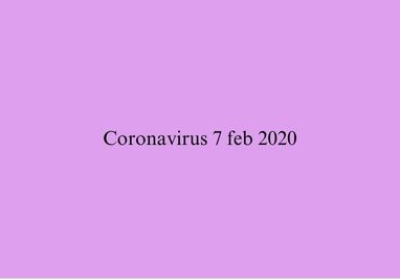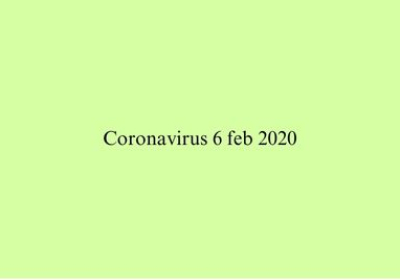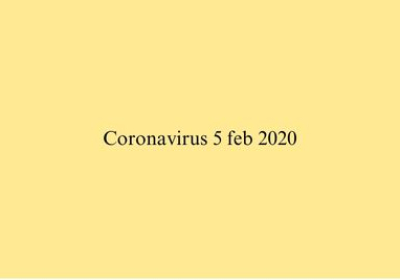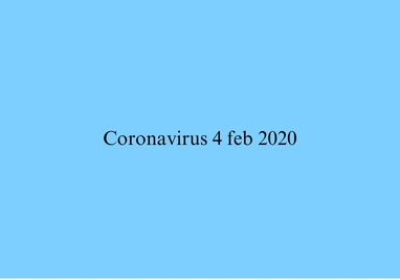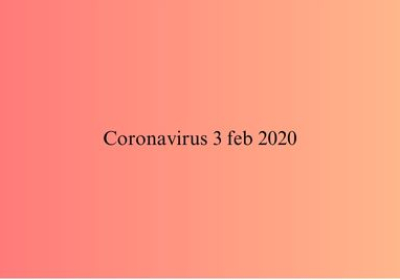
Sleep
You spend roughly one-third of your day sleeping, so it's crucial to your everyday schedule
- By --
- Saturday, 27 May, 2023
Sleep- You spend roughly one-third of your day sleeping, so it's crucial to your everyday schedule. As important to life as food and water is good sleep and getting enough of it at the appropriate moments. Without slumber, your brain cannot develop or keep the neural pathways necessary for memory formation and learning, and it becomes more difficult to focus and react rapidly. [1] A number of brain processes, including how nerve cells (neurons) interact with one another, depend on sleep. Your body and brain are actually incredibly busy while you sleep. [4]
How much sleep do I require ?
According to the research [2][3] Click here
https://docs.google.com/spreadsheets/d/18LhGimFw-
SRCM8d565kC0PxVNNpuwQtKfvNznU_wX3rg/edit?usp=sharing
Help you maintain or lose weight.
Compared to day shift employees, night shift workers made more money and were older. Night shift workers slept fewer hours and had higher weight, body mass index, and abdominal circumference when compared to day shift workers. Night shift workers had an almost 3-fold higher association with abdominal obesity, independent of age and gender, than day shift workers [5][6]
Additionally, a strong basal metabolic rate is needed [7]). According to studies, experimental sleep deprivation affects hormones in terms of drive and the endocrine system, as well as ghrelin levels, salt retention, and inflammatory indicators, as well as leptin and insulin sensitivity levels.
We have shown in this study that a lack of sleep is linked to greater calorie consumption overall, higher absolute calorie intake from fat, and diets that are disproportionately high in fat and low in protein. [8]
After a period of severe sleep loss, short, habitual sleep raises the risk of early overeating. It may be less likely that long-term health effects will occur if those at risk of excess are identified early and given behavioural counselling. [9]
Can improve concentration and productivity
Human existence is crucially dependent on sleep. [12] Lack of sleep has a detrimental impact on cognition, focus, productivity, and performance. [10] A comparable ISI impact was seen on the efficacy of vigilant attention in both normal and brief PVT.
In both studies, likewise PVT-S and PVT-B, sleep loss enhanced the ISI effect, which may be related to poor temporal resolution and time estimation after sleep loss.[11] Better scores are associated with higher-quality, more consistent sleep of all durations. [13]
For sleep-deprived decision-makers who depend on these latter abilities in emergency circumstances, sleep deprivation poses unique challenges. [14] However, impulsive decision-making is unaltered by partial sleep loss. [15] In both infants and adults, having enough sleep enhances both brain health and cognitive abilities.[16]
Sporting performance
Sleep performs a physiological job that is extremely essential, and it is possibly the most crucial element in workout recovery. A good night's sleep can improve one's ability to solve problems, respond quickly, and use fine motor skills. [17]
In other results, muscular power, speed, and other elements of physical function can be affected by sleep loss and/or poor sleep quality. [18]
Increased inflammation is related to inadequate sleep
The identification of mutual relationships among the immune system, sleep, and the central nervous system has demonstrated that immune defences are strengthened by sleep and that afferent impulses from immune cells stimulate deep sleep as well. [19]
Insomnia and other sleep disorders separately raise the chance of inflammatory diseases and severe depressive disorders. [20] Increases in markers of systemic inflammation are linked to sleep disruption and long sleep duration, but not short sleep duration. [21]
Summery
- There is solid proof to date that sleep, circadian disruption, and cardiometabolic risk are all related in a causative way.
- Therefore, health education efforts should go beyond traditional approaches by highlighting the critical role that a better sleep setting plays in halting the obesity pandemic.
- However, there is an urgent need for additional research to identify the molecular connections between sleep, the circadian clock, and metabolic pathways, as well as to investigate potential preventive and therapeutic measures to improve sleep and circadian rhythm in individuals with a higher risk of developing these conditions.
Sources
1.“Brain Basics: Understanding Sleep,” National Institute of Neurological Disorders and Stroke, 17-Mar-2023. [Online]. Available: https://www.ninds.nih.gov/health-information/public-education/brain-basics/brain-basics-understanding-sleep. [Accessed: 05-Apr-2023].
2. CDC, “How Much Sleep Do I Need?,” Centers for Disease Control and Prevention, 14-Sep-2022. [Online]. Available: https://www.cdc.gov/sleep/about_sleep/how_much_sleep.html. [Accessed: 05-Apr-2023].
3. CDC, “Short Sleep Duration,” Centers for Disease Control and Prevention, 12-Sep-2022. [Online]. Available: https://www.cdc.gov/sleep/data_statistics.html. [Accessed: 05-Apr-2023].
4. “Brain Basics: Understanding Sleep,” National Institute of Neurological Disorders and Stroke, 17-Mar-2023. [Online]. Available: https://www.ninds.nih.gov/health-information/public-education/brain-basics/brain-basics-understanding-sleep. [Accessed: 05-Apr-2023].
5. “Night shift work, short sleep and obesity - PubMed,” PubMed, 10-Feb-2020. [Online]. Available: https://pubmed.ncbi.nlm.nih.gov/32064002/. [Accessed: 05-Apr-2023].
6. “Night shift work, short sleep and obesity - PubMed,” PubMed, 10-Feb-2020. [Online]. Available: https://pubmed.ncbi.nlm.nih.gov/32064002/. [Accessed: 05-Apr-2023].
7. “Short sleep duration and health outcomes: a systematic review, meta-analysis, and meta-regression - PubMed,” PubMed, 01-Apr-2017. [Online]. Available: https://pubmed.ncbi.nlm.nih.gov/27743803/. [Accessed: 05-Apr-2023].
8. H. S. Dashti, F. A. Scheer, P. F. Jacques, S. Lamon-Fava, and J. M. Ordovás, “Short Sleep Duration and Dietary Intake: Epidemiologic Evidence, Mechanisms, and Health Implications,” PubMed Central (PMC), 10-Nov-2015. [Online]. Available: https://www.ncbi.nlm.nih.gov/pmc/articles/PMC4642416/. [Accessed: 05-Apr-2023].
9. “Habitual sleep duration predicts caloric and macronutrient intake during sleep deprivation - PubMed,” PubMed, 01-Feb-2020. [Online]. Available: https://pubmed.ncbi.nlm.nih.gov/31680050/. [Accessed: 05-Apr-2023].
10. A. R. Eugene and J. Masiak, “The Neuroprotective Aspects of Sleep,” PubMed Central (PMC). [Online]. Available: https://www.ncbi.nlm.nih.gov/pmc/articles/PMC4651462/. [Accessed: 05-Apr-2023].
11. A. R. Eugene and J. Masiak, “The Neuroprotective Aspects of Sleep,” PubMed Central (PMC). [Online]. Available: https://www.ncbi.nlm.nih.gov/pmc/articles/PMC4651462/. [Accessed: 05-Apr-2023].
12. A. R. Eugene and J. Masiak, “The Neuroprotective Aspects of Sleep,” PubMed Central (PMC). [Online]. Available: https://www.ncbi.nlm.nih.gov/pmc/articles/PMC4651462/. [Accessed: 05-Apr-2023].
13. K. Okano, J. R. Kaczmarzyk, N. Dave, J. D. E. Gabrieli, and J. C. Grossman, “Sleep quality, duration, and consistency are associated with better academic performance in college students,” PubMed Central (PMC), 01-Oct-2019. [Online]. Available: https://www.ncbi.nlm.nih.gov/pmc/articles/PMC6773696/. [Accessed: 05-Apr-2023].
14. “The impact of sleep deprivation on decision making: a review - PubMed,” PubMed, 01-Sep-2000. [Online]. Available: https://pubmed.ncbi.nlm.nih.gov/11014055/. [Accessed: 05-Apr-2023].
15. “Partial sleep deprivation impacts impulsive action but not impulsive decision-making - PubMed,” PubMed, 01-Oct-2016. [Online]. Available: https://pubmed.ncbi.nlm.nih.gov/27267950/. [Accessed: 05-Apr-2023].
16. “Effects of Sleep Deprivation on Working Memory: Change in Functional Connectivity Between the Dorsal Attention, Default Mode, and Fronto-Parietal Networks - PubMed,” PubMed, 12-Oct-2020. [Online]. Available: https://pubmed.ncbi.nlm.nih.gov/33192381/. [Accessed: 05-Apr-2023].
17. K. C. Vitale, R. Owens, S. R. Hopkins, and A. Malhotra, “Sleep Hygiene for Optimizing Recovery in Athletes: Review and Recommendations,” PubMed Central (PMC), 09-Jul-2019. [Online]. Available: https://www.ncbi.nlm.nih.gov/pmc/articles/PMC6988893/. [Accessed: 05-Apr-2023].
18. “Sleep and Athletic Performance: Impacts on Physical Performance, Mental Performance, Injury Risk and Recovery, and Mental Health: An Update - PubMed,” PubMed, 01-Jun-2022. [Online]. Available: https://pubmed.ncbi.nlm.nih.gov/35659079/. [Accessed: 05-Apr-2023].
19. “10 Top Benefits of Getting More Sleep,” 10 Top Benefits of Getting More Sleep. [Online]. Available: https://www.healthline.com/nutrition/10-reasons-why-good-sleep-is-important. [Accessed: 05-Apr-2023].
20. “Sleep Health: Reciprocal Regulation of Sleep and Innate Immunity - PubMed,” PubMed, 01-Jan-2017. [Online]. Available: https://pubmed.ncbi.nlm.nih.gov/27510422/. [Accessed: 05-Apr-2023].
21. “Sleep Disturbance, Sleep Duration, and Inflammation: A Systematic Review and Meta-Analysis of Cohort Studies and Experimental Sleep Deprivation - PubMed,” PubMed, 01-Jul-2016. [Online]. Available: https://pubmed.ncbi.nlm.nih.gov/26140821/. [Accessed: 05-Apr-2023].

